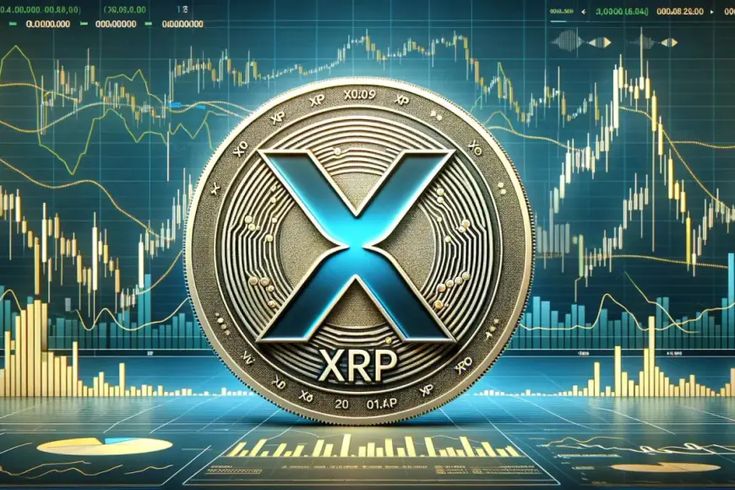Introduction
XRP (Ripple), the digital currency associated with Ripple, is one of the most significant and talked-about cryptocurrencies in the world. Unlike Bitcoin or Ethereum, which are primarily used as investments or store-of-value assets, XRP was designed with a distinct purpose: to revolutionize cross-border payments and reduce the friction of global financial transactions. With its unique features and growing influence, XRP has become a key player in the world of digital finance. In this article, we will explore the biography, history, impact, and significance of XRP (Ripple), as well as its contributions to society and the global financial system.
What is XRP (Ripple)?
XRP (Ripple) is the native digital currency of the Ripple network, a platform designed to facilitate fast, secure, and low-cost international payments. Ripple Labs, the company behind XRP, was founded in 2012 by Chris Larsen and Jed McCaleb. Unlike other cryptocurrencies that rely on decentralized networks like Bitcoin’s Proof of Work mechanism, Ripple utilizes a unique consensus algorithm called the RippleNet protocol, which allows for faster transaction speeds and lower fees.
The key difference between XRP and other cryptocurrencies is that XRP is primarily used as a bridge currency to facilitate cross-border transactions. Banks and financial institutions use XRP as a liquidity provider to make global payments faster and more affordable. With the growing adoption of XRP by major financial institutions worldwide, the currency has positioned itself as a solution for the future of global finance.
The History of XRP (Ripple)
XRP (Ripple) was launched in 2012 by Ripple Labs, with the primary goal of addressing the inefficiencies of traditional banking systems, particularly the slow and expensive process of cross-border payments. Traditional methods of sending money internationally, like wire transfers, can take days to settle and come with high fees. Ripple sought to eliminate these barriers by leveraging blockchain technology and creating a network where transactions can be processed in seconds for a fraction of the cost.
Ripple’s RippleNet was designed to facilitate both fiat-to-fiat and cryptocurrency-to-fiat payments, helping institutions around the world conduct instant money transfers. Ripple’s XRP token acts as the intermediary currency for these transactions, providing liquidity for the transfer of funds across borders.
Ripple’s growth has been remarkable, and in 2017, XRP was one of the top three cryptocurrencies by market capitalization, alongside Bitcoin and Ethereum. Despite facing regulatory challenges, particularly in the United States, XRP has maintained its position as one of the leading digital currencies.
Daily Life Impacts of XRP (Ripple)
XRP (Ripple) has transformed the way people think about and use money, especially in the realm of cross-border payments. Here are some of the everyday impacts XRP has on global finance:
- Faster International Transfers: XRP (Ripple) enables instant international payments, allowing individuals and businesses to send money across borders in just a few seconds. This reduces the long wait times often associated with traditional banking methods.
- Lower Transaction Fees: Sending money through XRP (Ripple) can be significantly cheaper than traditional wire transfers or using other digital currencies. XRP’s low fees make it more accessible and affordable for businesses and individuals to send money globally.
- Financial Inclusion: XRP (Ripple) provides a new avenue for financial inclusion by enabling people in underserved regions to participate in the global economy. By reducing transaction costs and improving speed, Ripple makes cross-border payments more accessible to people without access to traditional banking infrastructure.
- Enhanced Remittances: Remittances from workers abroad can be a lifeline for families in developing countries. XRP has made remittance transfers faster and cheaper, helping send money more efficiently and effectively.
- Improved Business Transactions: XRP (Ripple) also impacts the business world, making it easier for companies to settle international payments and work with global partners. Ripple’s technology has simplified transactions and lowered the barriers to entry for businesses entering new markets.
Fun Facts About XRP (Ripple)
- XRP’s Supply: Unlike Bitcoin, which has a fixed supply of 21 million coins, XRP has a total supply of 100 billion tokens. However, only a portion of these tokens are in circulation, with the rest held by Ripple Labs for future use.
- Ripple’s Major Partnerships: Ripple has formed strategic partnerships with over 300 financial institutions worldwide, including big names like American Express, Santander, and PNC. These partnerships have helped Ripple gain significant traction in the traditional financial sector.
- XRP’s Transaction Speed: XRP can process up to 1,500 transactions per second (TPS), which is much faster than Bitcoin’s 7 TPS or Ethereum’s 30 TPS. This makes it an attractive option for businesses and financial institutions looking for a scalable payment solution.
- XRP Ledger: The XRP Ledger is an open-source blockchain designed for fast and secure financial transactions. It is unique in that it doesn’t rely on mining, which reduces energy consumption compared to Proof of Work-based systems.
Frequently Asked Questions (FAQs) XRP (Ripple)
- What is XRP used for? XRP is used as a bridge currency for cross-border payments. It provides liquidity for international transactions, making them faster and cheaper for individuals and businesses.
- Is XRP the same as Bitcoin? No, XRP is not the same as Bitcoin. While both are digital currencies, Bitcoin uses a Proof of Work consensus mechanism and is primarily used as a store of value, whereas XRP uses the RippleNet protocol to facilitate fast and low-cost cross-border payments.
- Is XRP a good investment? The investment potential of XRP is a subject of debate. While it has experienced significant growth in the past, its value can be influenced by market fluctuations and regulatory challenges. As with any investment, it is essential to conduct thorough research and evaluate the risks involved.
- How do I buy XRP? XRP can be purchased on most major cryptocurrency exchanges such as Binance, Coinbase, and Kraken. You can buy XRP using fiat currency or by trading other cryptocurrencies.
- Can XRP replace traditional banking? While XRP has the potential to disrupt traditional banking by offering faster and cheaper cross-border payments, it is unlikely to completely replace traditional banking. However, it can complement existing financial systems and provide more efficient solutions for international transactions.
The Significance of XRP (Ripple) to Society
XRP is more than just a cryptocurrency; it is a transformational force in the world of finance. Its significance lies in its ability to:
- Streamline International Payments: Ripple’s technology provides a much-needed solution for global financial systems that are slow and expensive. By making payments faster and cheaper, XRP is revolutionizing the way businesses and individuals move money around the world.
- Promote Financial Inclusion: XRP plays a crucial role in promoting financial inclusion by giving people in developing regions access to financial services. With XRP, users can make cross-border payments without relying on traditional banking infrastructure.
- Enhance Cross-Border Trade: By making international transactions more affordable, XRP has the potential to boost global trade. It enables businesses to engage in seamless cross-border transactions, helping them expand into new markets.
- Shape the Future of Finance: Ripple’s vision for the future of finance is to create a worldwide payments network that transcends traditional banking barriers. With partnerships across the globe, Ripple is laying the groundwork for the next generation of financial infrastructure.
Conclusion: XRP (Ripple)
XRP (Ripple) is a game-changer in the world of cryptocurrencies and finance. With its ability to provide fast, low-cost, and secure cross-border payments, XRP is well-positioned to become a leading cryptocurrency in the global financial system. Through partnerships with major financial institutions, Ripple has solidified its reputation as a key innovator in the blockchain space. While regulatory hurdles remain, the growing adoption of XRP is a testament to its potential to shape the future of finance.










